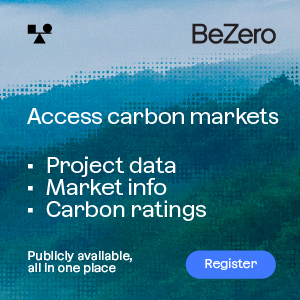The EU is pushing for the Paris global climate deal to take stock of all national pledges before 2020, a move that Europe’s climate commissioner Miguel Arias Canete said would mean the 28-nation bloc and many other countries would come under pressure to up their goals.
The news came on the penultimate scheduled day of the two-week Paris negotiations on a post-2020 global climate pact, with a deal yet to emerge among all 195 countries.
The EU has long backed five-year reviews of national pledges, but throwing its weight behind a pre-2020 stocktaking is the clearest signal yet the bloc could be willing to scale up its current 2030 emission reduction target of a minimum 40% cut from 1990 levels.
“If we do this stocktaking starting now, in 2021 we will be able to raise the level of ambition on a voluntary basis,” Arias Canete told a press briefing at the talks.
“For sure the European Parliament will press to raise the level of ambition (of the EU goal),” he said, adding that new policies and new technologies would emerge in the coming years.
He referred to EU data projecting that the bloc is on course to cut its emissions 24-25% under 1990 levels by 2020, outpacing its legally-binding 20% reduction goal.
MEPs HESITANT
Italian lawmaker Giovanni La Via, chair of the European Parliament’s environment committee, told Carbon Pulse that it was not a given that the EU Parliament would demand a deeper EU target.
“If we are going to increase our ambition, we have to look at other parts of the world. We cannot commit to increase our level of ambition if we don’t have the same ambition among other parties,” he said.
In the run-up to the Paris talks, member states have been more reluctant than parliamentarians to raise the issue of a potentially deeper goal, with many considering the 40% mark a hard-fought political bargain that should hold amid concerns about EU industry facing higher energy bills than their foreign rivals.
In October, France’s Environment Minister Segolene Royal broke ranks to suggest the increasing spread of global climate action should enable the bloc to scale up its ambition.
Poland, on the other hand, raised the prospect that the 40% goal could be weakened should the Paris talks not yield comparable goals from other economies.
Any deepening of the overall pledge would almost certainly mean a tighter cap for the EU ETS, which regulates around half of the bloc’s GHG output.
GLOBAL SHIFT
Analysts at Climate Action Tracker believe the INDCs, as they stand, would warm the planet by 2.7C, well above the 2C level countries have collectively agreed to reach.
Arias Canete said a pre-2020 review would also pressure all nations to deepen their targets, while pushing developing nations to set an earlier date for when their emissions will peak.
“That China peaks before 2030 is of upmost importance to reducing global emissions,” he added, referring to the country’s position as the world’s biggest emitter.
China has pledged to peak its emissions by 2030, adding that it will strive to do it earlier. Many observers expect China’s current emissions to crest several years before that.
The current draft Paris text includes wording for an initial review in 2018 or 2019, with the first “stocktake” of pledges once the deal is in force coming in 2024. The EU has long-pushed for more external scrutiny of INDCs, having had its call last year to review the pledges before Paris rebuffed by big emitting nations, which decried the proposal as a threat to their sovereignty.
Most countries favour a five-year review but remain divided on what form the process should take. Environmental campaigners are pushing for pledges to be subject to objective international reviews rather than far looser “facilitative dialogues”.
Of the world’s big three economic and emitting blocs, both the EU and China are already on track to meet or exceed their INDC emission pledges with policies already being implemented while the US will require some additional action, according to research by Bloomberg New Energy Finance.
Alex Hanafi of environmental group EDF said that countries have been conservative in their INDCs and that a Paris deal could encourage many to rapidly ratchet up their goals.
“You can’t judge the ambition of the Paris agreement by just looking at the national targets. It’s likely that many will over-achieve.”
He added that comprehensive rules requiring countries to be transparent about how they are meeting their pledges was a major factor in how much confidence they would have in scaling them up.
By Ben Garside – ben@carbon-pulse.com
Not yet signed up to CP Daily? Subscribe to our free newsletter here



